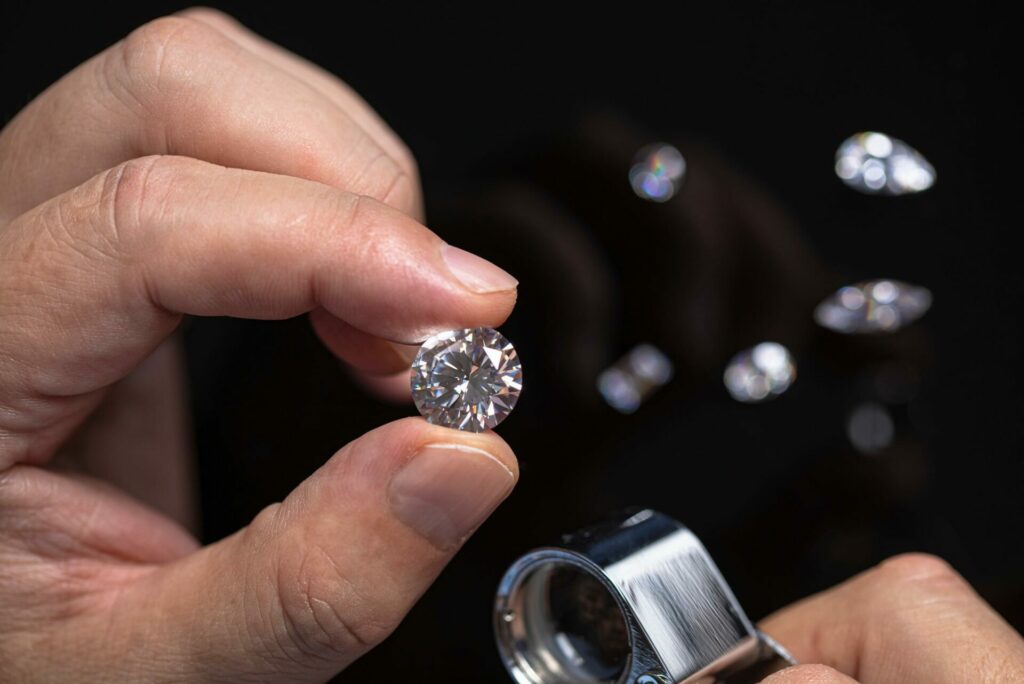Nearly two years after Russia invaded Ukraine, the G7 has reached an agreement to keep Russian 'blood' diamonds out of the European Union and the United States from next year for the foreseeable.
Ukrainian President Volodymyr Zelenskyy stressed that "peace is worth more than diamonds" in his address to Belgium's Federal Parliament at the end of March 2022, but it took almost two years for Belgium to stop financing the Russian war machine through Antwerp's diamond district.
"The Russian blood diamond trade must stop, and it must stop in a way that will stop the financing of the Russian war machine," Prime Minister Alexander De Croo announced before the Federal Parliament on Thursday. "Together with the G7 we have reached an agreement that ensures that it is shut down, but also that Antwerp can continue to play the role it plays."
From 1 January 2024, the G7 (Canada, France, Germany, Italy, Japan, the UK and the US) will impose a ban on the import of diamonds from Russia on their markets – totalling over 70% of the global diamond trade.
Closing the loophole
From March 2024, an 'indirect' import ban will follow: the diamonds will no longer be able to be brought in via another country. This is important because an embargo could easily be circumvented this way; Russian rough diamonds that were cut in Dubai could, for example, be resold as if they were Indian.
"The agreement was reached in the G7, and we were really punching above our weight there. We are not a member of the G7 and we will not become one anytime soon," De Croo said.
To close the loophole, the G7 is introducing a brand new tracing system to detect a diamond's origin. Such certificates of origin have existed for some time, but have always been very susceptible to fraud.
The new system will use blockchain technology, which makes counterfeits much more difficult. "A new step in the pioneering work that our country started 25 years ago in the fight against blood diamonds," said De Croo, who was heavily involved in the negotiations.
"After pressure from the green parties within the Federal Government, the ban on Russian diamonds has finally been agreed: a ban in both the G7 and the EU," Federal Minister Petra De Sutter stated on social media. "These blood diamonds will no longer help finance the war in Ukraine."
Through the new rules, Russia will lose access to 70% of the global diamond market and it is expected that diamond sales will yield considerably less due to the smaller sales market. It will likely take time for the indirect import ban to come into effect, but sources in the sector said that Russian diamonds should be completely excluded from the G7 by 1 September 2024 if all goes well.
Related News
- Antwerp awaits international decisions on Belgium's conflict diamond proposal
- 'Symbol of war': De Croo asks jewellery sector to restrict Russian diamonds
- 'Peace is worth more than diamonds': Zelenskyy addresses Belgium's Parliament
While the import ban and new tracing mechanism were announced by the G7 at the beginning of this year, it took a long time to materialise. The Antwerp diamond sector also resisted sanctions for a long time, but the city is now positioning itself at the centre of the 'clean' diamond market.
"We worked very hard on this agreement, and indeed it took some time," said De Croo. "Through this deal, Antwerp will strengthen its position as the world diamond trading centre to a position as the control gate for diamonds for which we can perfectly guarantee that the origin can be traced correctly."

